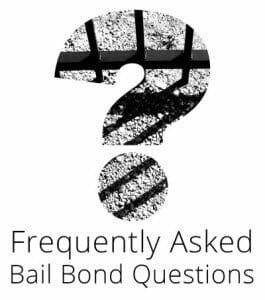Is Bail And Bond The Same Thing?

What Is The Difference Between Bail And Bond?
You've been arrested and are now looking at a criminal record. The only way to avoid this is by posting bail, but you don't know how much it will cost or if you can afford it.
This article will answer all of your questions about the difference between bail and bond, as well as what to do if you're not able to post bail. We'll also discuss what happens after someone posts bail for another person.
After an individual is arrested, they will either be released on their own recognizance (ROR) or they will have to post bail. If they are able to pay the full amount of the bail, then the payment is due immediately.
If the individual cannot pay the full amount of bail, then they may be able to post a bond for some portion of that amount. This is especially common if the person was arrested for DUI, DWI, OVI, or any other related charge.
If someone else posts bail for another individual, it means that they will be responsible for all of the payment requirements should the defendant fail to appear in court or commit a crime while out on bail.
Bail vs. Bond
The main difference between bail and bond is that bail is money that's deposited to ensure the individual returns for their court date, while bond merely provides a guarantee.
For example, if someone fails to appear in court or they are convicted of a crime then the posted bail can be lost, but it won't necessarily be paid by the person who posted the bond because it's only a guarantee.
Bail requires an amount to be set based on factors such as the severity of the crime, past criminal history, and other related factors. Once bail is paid, the defendant will either be released or held until their court date.
If someone posts bail for another individual, then they are required to pay the full amount should that person not follow through with their court date.
Bail Hearing
Following an individual's arrest, they will usually be held in jail until their bail hearing. This is when the judge sets an amount for the individual's bail.
The bail hearing will include factors such as the severity of the crime, past criminal history, and any other factors that might affect whether or not this individual is a flight risk.
If an individual can pay their full bail amount immediately, then it must be paid in cash. This is usually 10% of the total amount. In Arizona, for example, someone with a $10,000 total bail only has to pay about $1,000.
If someone is held until their next court date without posting bail or being allowed to post bond, then they are generally entitled to an initial appearance within 24 hours in most states. This hearing will determine whether or not there was probable cause for their arrest.
If the bail cannot be paid in cash, then it can either be paid by a bail bond company like Didn't Do It Bail Bonds or through a professional bondsman.
After an individual posts bail, they are responsible for all court appearances until their case is completed. If there's ever a question about whether or not an individual will appear in court, then that money might be held until the case is completed.
If someone posts bail for another individual, then they are required to pay all of the bail if that person skips their court date or is convicted of a crime while on bail. This will include any fines and fees associated with this crime.
Bail Bond Companies
Bail bond companies will work to provide a guarantee that an individual will appear in court, but they aren't always willing to do this for people who have been arrested on misdemeanors because the amount of money involved is generally low.
If someone posts bail using a bondsman, then they are required to pay a non-refundable fee of 10%. This means that if the defendant fails to appear in court or is convicted, then this company will pay the full bail amount.
When looking for a bondsman you can trust in Arizona get in touch with one of Arizona's most trusted bail bonds agents.
My name is Darrel Luth and I am the proud owner of Didn't Do It Bail Bonds. I am a retired Marine and served my Country proudly. I have been in the bail bond business for over 6 years and am one of the most successful bail bondsmen in Arizona. I attribute my success to hard work, integrity, and treating my clients with respect.